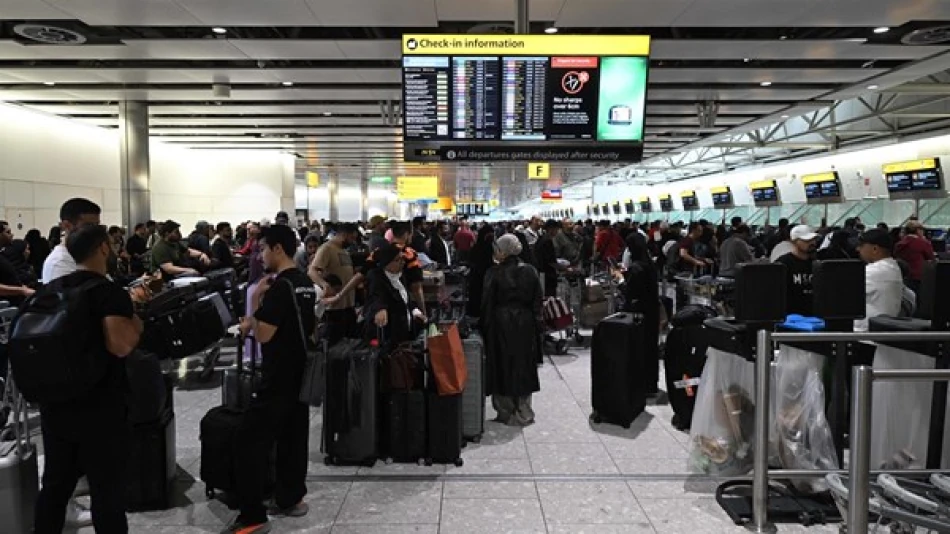
Cyber Attack Disrupts European Airports, Prompting Improved Operations
European Airports Slowly Recover After Cyberattack Cripples Check-in Systems
A cyberattack on passenger check-in software disrupted flights across multiple European airports over the weekend, forcing thousands of travelers to wait hours for manual processing. While London, Berlin, and Dublin have largely restored normal operations, Brussels continues to struggle with significant delays and cancellations as airlines work around the compromised systems.
The Damage Assessment
Brussels bore the brunt of the disruption Sunday, canceling 45 out of 257 scheduled departures. Passengers faced delays between 30 to 90 minutes as airport staff manually processed check-ins and baggage handling. A spokesperson for Brussels Airport said the situation remained "manageable thanks to these cancellations and partner preparations."
The contrast was stark at other major hubs. London's Heathrow reported that the "vast majority of flights" continued operating through close coordination with airlines. Dublin Airport expected normal operations to resume Sunday, while Berlin Airport confirmed its operations were running "smoothly without any problems."
What Went Wrong
The cyberattack targeted MUSE software developed by Collins Aerospace, a system widely used for passenger check-in and baggage handling across European airports. The company issued a brief statement acknowledging the "electronic malfunction" but provided no details about the attack's origin or the perpetrators behind it.
The incident began Friday evening, according to Brussels Airport, immediately forcing staff to revert to manual check-in processes - a time-consuming backup that created bottlenecks throughout the weekend.
A Growing Vulnerability
This attack highlights the aviation industry's increasing dependence on interconnected digital systems. When a single software provider like Collins Aerospace experiences a breach, the ripple effects can ground flights across continents within hours.
The aviation sector has faced similar disruptions before. In 2022, a technical glitch at the UK's air traffic control system caused widespread flight cancellations. Earlier this year, a Microsoft outage brought down airline systems globally, stranding passengers worldwide.
What This Means for Travelers
Airports are urging passengers to contact their airlines directly and arrive earlier than usual for flights. The manual check-in processes, while functional, take significantly longer than automated systems.
For the aviation industry, this incident underscores the urgent need for better cybersecurity measures and backup systems. As airports become more digitized, they also become more vulnerable to attacks that can paralyze operations within minutes.
The quick recovery at most airports suggests that contingency plans worked reasonably well. But the fact that Brussels is still struggling days later shows how a single point of failure can create lasting disruptions in our interconnected travel infrastructure.
Most Viewed News

 Layla Al Mansoori
Layla Al Mansoori






